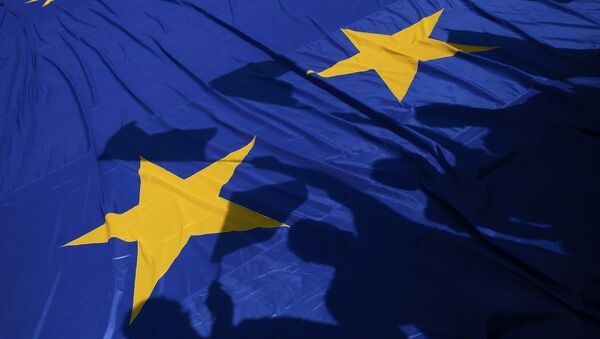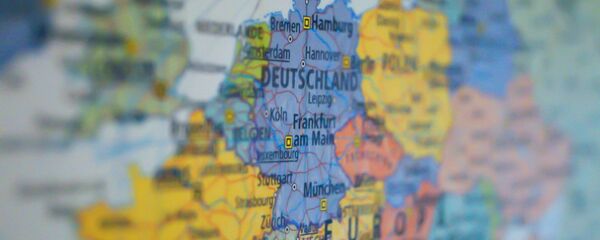Lode Vanoost, political analyst and former deputy speaker of the Belgian parliament, speaking to the Sputnik Radio said:
"When we talk about fiscal policies within the EU you have to make prior remarks. First of all, the EU has always had their own tax havens within the EU itself, they were never touched upon, the Duchy of Luxemburg, Monaco and Liechtenstein, but those things have always been tolerated for good reason by the people that matter on the top. Secondly, the US always imposed tax policies on African countries in trade agreements that were detrimental to the interests of the African people. Thirdly, these kind of policies that we're going to discuss, they do benefit certain people, certain companies, certain elites, they do not at all benefit the ordinary EU citizens in Brussels or in Amsterdam or other cities. What's going on now is not actually something new. The thing is that with these kind of policies that EU still takes, it works if only they do it, if only a few, as soon as they all start doing it, then it becomes counter-productive and that's exactly why the European Commission has started to criticize them, because if so many EU countries are going to do it then, of course, it's going to be detrimental to big economic interests."
READ MORE: 'Napoleon 2.0': What Does Macron's 'United States of Europe' Push Entail?
Sputnik: Interestingly enough there are the increased tensions between Hungary and EU over the migration issue and the rule of law, what consequences can this have on the already strained relationship between Brussels and Budapest?
What we have here is a government and I'm not saying the people, but the government that is really putting the whole idea of European unity in jeopardy. What they are doing is clearly anti the rest of Europe, I mean not just because of what they do, I don't know what this is going to be in the short-term, this is going to certainly make the situation even worse, absolutely.
How this is going to turn out in the long-term that remains to be seen. If we look at the results of elections in Italy now, for example, it is going to get worse, this is the whole idea of European unification is going.
Sputnik: Now Ireland is also on the list, how will it affect relations between the two sides amid ongoing Brexit?
Lode Vanoost: Ireland has for a certain time been a so-called economic because of its fiscal policies attracting foreign companies, but this was not something that was good for the Irish people, ordinary people, but for certain companies, certain big companies that benefited a lot and now this bubble has exploded. The thing is, of course, what it is going to mean, that there going to be, like they call nowadays, a hard border between the North and the rest of Ireland.
READ MORE: 'Tensions in the World': Europe Lacks Unity on Specifics of New Security Policy
If you look at how the Brexit negotiations are going with the present government in London, this is really unseen territory in diplomatic history. I mean, here we have a government that is leading a club and saying we will set the terms, things do not work out that way, the terms are being set by Brussels. There are so elements here that every decent so-called expert, as in backers, has to say we don't know what's going to happen next, and this is not good, of course, absolutely not good, it could take a turn for the worse. This could mean the end of the whole idea of the European Union.
Lode Vanoost: They might, but I don't think so. First of all, this so-called blacklist of other countries is already so weak and so thinned out that it doesn't mean a thing.
Sputnik: The EU has not previously screened it's member states as they were deemed to be in line with EU standards and regulations against tax avoidance, again do you think this could possibly change in the future?
Lode Vanoost: I don't think that with the present political constellation of the European Commission and other European institutions things are going to change for the better, on the contrary, things are going to get worse.
READ MORE: The United States of Europe: Towards Independence or Dependency?
Sputnik: Since publishing the list, the EU has since removed some jurisdictions and is poised to shrink it even more. This move has caused critics to urge the EU to publish how it determines which country should go on the list and why, do you think we'll see such requirements in the near future?
Sputnik: Speaking in general to what extent can the current situation deepen the divide among the EU member states?
Loode Vanoost: My personal opinion is that the only way to keep the European harmony or what's left of it, is that the EU has to become a social union and not an economic union. In order to change that the European institutions have to change themselves from within, and that's not going to happen as long as we have these governments who push for neo-liberal policies. Some analysts that this swing to the right is a reaction to the migration policies, I'm not denying that it might play a role in that, but if you talk to people and ask them what they all share — is an uncertainty.
The views expressed in this article are solely those of the speaker and do not necessarily reflect the official position of Sputnik.






